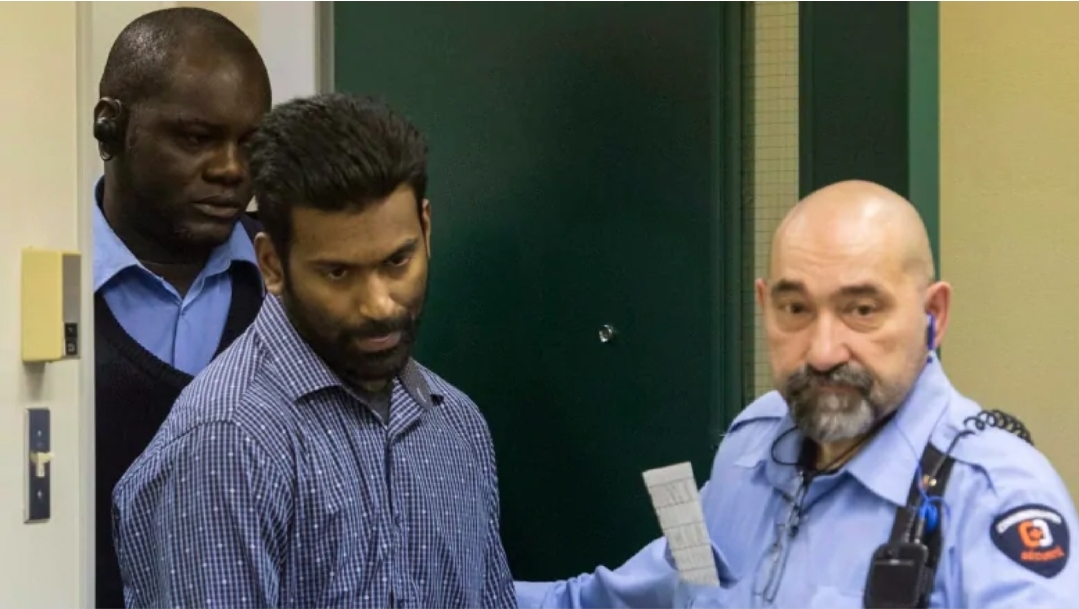
CBC News : In an unanimous decision, the Supreme Court of Canada has dismissed an appeal by the Quebec Crown for a new trial in the case of a Sri Lankan national who was deported after his murder charge was stayed due to excessive court delays.
Sivaloganathan Thanabalasingham, a refugee from Sri Lanka and a permanent resident, was charged in 2012 with the second-degree murder of his 21-year-old wife, Anuja Baskaran.
In 2017, Thanabalasingham avoided a trial after he applied for a stay of proceedings on the grounds that his right to be tried within a reasonable time had been infringed.
The decision to grant him a stay sent shock waves through Quebec’s legal system.
A Quebec Superior Court judge ruled the nearly 60-month delay between Thanabalasingham’s 2012 arrest and the start of his trial, which was scheduled to begin on April 10, 2017, was excessive according to a benchmark set by the Supreme Court in its ruling on R. v. Jordan in 2016.
That ruling established the so-called Jordan standard — a hard limit on the amount of time that can pass between the laying of charges and the anticipated end of a trial. The Jordan limits are 30 months for superior court cases and 18 months for provincial court cases.
Today, the high court agreed the delay breached Thanabalasingham’s rights.
“The clear and distinct message in Jordan was that all participants in the system are to take proactive measures at all stages of the trial process to move cases forward and bring accused persons to trial in a timely fashion,” the decision said.
“Practices that were formerly commonplace or merely tolerated are no longer compatible with the right guaranteed by s. 11 (b) of the Charter — a right that inures not just to the benefit of accused persons, but to the benefit of victims and society as a whole as well.”
Thanabalasingham’s charges were the first to be thrown out under Jordan in Quebec.
Three days after the second-degree murder proceedings were stayed, a deportation order was issued against Thanabalasingham because he had been convicted of assault against his wife related to three previous incidents in 2011 and 2012, and was ordered to serve four months in jail.
The assaults predated Baskaran’s killing at the apartment she shared with her husband in August 2012. Thanabalasingham was charged with second-degree murder, but pleaded not guilty.
Thanabalasingham was sent back to Sri Lanka on July 5, 2017 without objection.
Despite the fact that Thanabalasingham is no longer in Canada, the Crown continued to pursue an appeal.
“We felt that it gave a wrong interpretation or applied wrongly the Jordan decision,” Crown prosecutor Maude Payette said.
Payette said the Crown did not agree with how the delay was calculated, noting that 80 per cent of the proceedings in Thanabalasingham’s case happened before the Jordan ruling came down.
The Crown also argued for an exception to Jordan because it took one year to hold a preliminary hearing due to adjournments, and a need for translation in English, French and Tamil.
The Crown unsuccessfully sought a first-degree murder charge, and the trial judge ruled the Crown was partly to blame for the holdups.
The Crown had asked the Quebec Court of Appeal to order a new murder trial, but the province’s high court initially didn’t hear the case because it said Thanabalasingham’s prosecution had become irrelevant and theoretical.
The Crown brought the matter before the Supreme Court, which bounced the case back to Quebec’s Court of Appeal for a decision on its merits.
The majority of the Court of Appeal justices dismissed the Crown’s appeal on the basis that it had not found any errors in the original ruling. The Crown then brought the case back to the high court.
If the Supreme Court ruled in the Crown’s favour, Thanabalasingham could have faced a new trial if he ever returned to Canada.